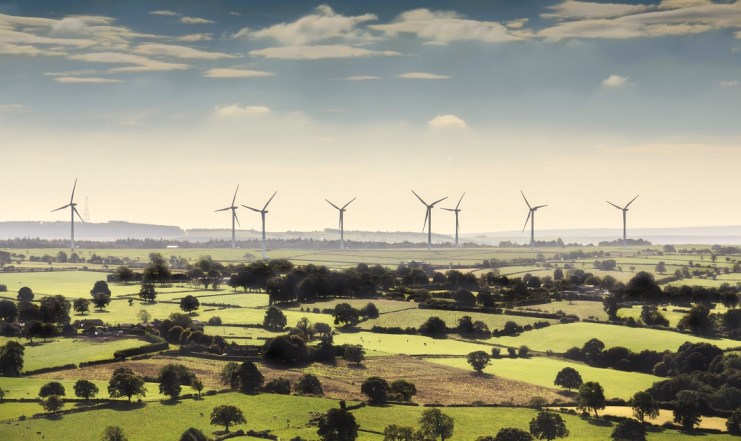Renewables warning: ‘Race to the bottom’ on production prices risks destabilising entire wind industry

Generating wind power at lower prices risks destabilising the entire industry and deterring investment, the sector has warned the government.
Three wind giants, Renewable UK, Energy UK and Scottish Renewables have called on the energy security secretary Grant Shapps to support the industry with more funds.
They also urged it to broaden the focus of clean power auctions amid inflationary pressures and an economic downturn.
The industry trio fear the UK is putting pressure on wind turbine manufacturers and eating into their margins.
The three trade associations have written to Grant Shapps, calling for the budget for the latest allocation round to be raised and for the strike price – which determines the cost of generating energy – to be stabilised.
This follows calls from the industry for auctions to no longer be determined purely by generation price, but instead take into account wider industry benefits such as growing supply chains and jobs in communities.
The government is considering this in a consultation. Currently, wind producers bid for projects in allocation rounds, known as contracts for difference (CfDs), where companies offering the lowest strike price winning plots of land to build new offshore farms in British waters.
As it stands, the latest fifth allocation round has a set allowance of £205m established by the government last year, which the industry considers insufficient in the current economic climate.
What are the three bodies calling for?
The three bodies state: “Jointly we believe that a broader approach is needed in defining how best value is delivered from allocation round 5 onwards for the industry and consumer. This should take account of the current economic environment, international competition in the sector and the benefits to UK plc from the timely deployment of homegrown, cost-effective renewable energy.”
They are pushing for the budget for fixed-foundation offshore wind to hiked 2.5 times its current level and for a separate budget for new technologies such as floating offshore wind.
This could eventually lead to higher bills for consumers, with wind power currently among the cheapest sources of energy generation.
However, they consider the threat of diminished investment and instability to be a greater challenge for containing rising bills.
The letter warns : “The current emphasis on securing renewable capacity at the lowest possible strike price – minimising expenditure rather than maximising benefit – risks creating a less attractive investment environment in the UK. The race to the bottom on strike prices incentivised by the current auction process is at odds with the reality of project costs and investment needs, jeopardising deployment targets.”
The trade associations also contrasts the UK’s investment climate with the subsidy regimes in the US and the EU – warning the country’s position as a world leader in clean energy can no longer be guaranteed.
Siemens Energy which has suffered serious setbacks from a wind turbine model plagued with faults, has also cited supply chain pressures for the £500m costs its renewables arm has wracked up.
Meanwhile, RWE has also warned of pressures in the supply chain that are driving up costs.
It told City A.M. last month that scarcity in the current supply chain is creating bottlenecks, delays and large increases in contract prices,” with investment costs rising 30-40 per cent for UK and European offshore projects between 2021-2023.
When approached for comment, a government spokesperson said: “We are currently consulting on the future of our flagship renewables auction scheme, ensuring we maximise investment and jobs into renewables and UK supply chains and ensure cheaper costs lead to cheaper bills for consumers as quickly as possible.”